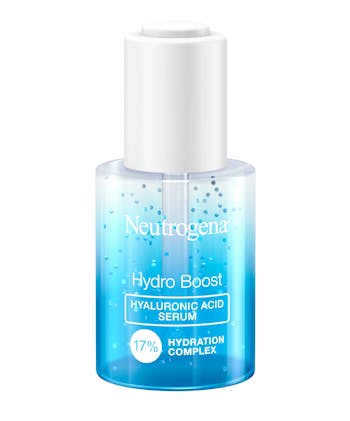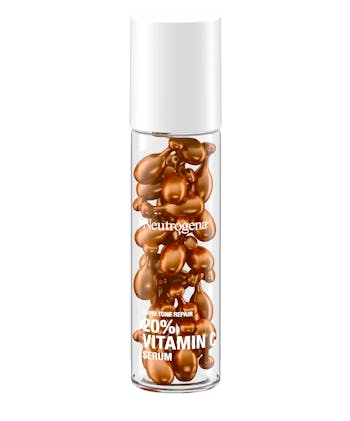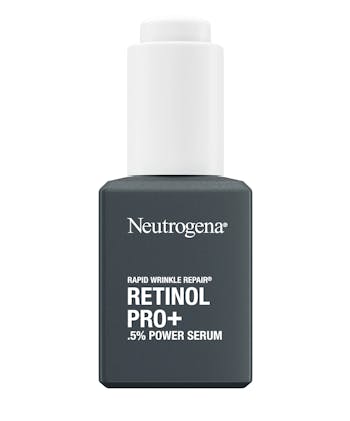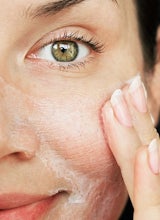Serums are true multitaskers, packed with ingredients that hydrate your skin, control breakouts or boost collagen production — or even do all three. Serums can offer serious benefits for your skin, particularly when you know how to choose the right one for you.
What Is Serum?
A serum is a highly concentrated solution designed to nourish, protect and hydrate your skin. The active ingredient varies by formulation — you're as likely to see retinol as you are vitamin C. Regardless, serums are designed to absorb quickly into the skin.
How Do You Apply Face Serums?
What is serum's ideal place in your routine? To work a new serum into your regimen, reach for your bottle after cleansing but before moisturizer. That's the sweet spot to maximize your skin's healthy glow — apply a thin layer of serum while your skin is still damp to seal in all that moisture.
If you have sensitive skin, consider using your face serum once a week until your skin can tolerate it. If your routine contains more than one serum, try alternating days between the serums rather than applying them all at once, suggests Michele Farber, M.D., FAAD of Schweiger Dermatology Group.
What Are the Benefits of Different Types of Face Serum?
The benefits of face serums are as unique as the formulations themselves. A product may target a specific concern, such as minimizing fine lines and wrinkles, or aim to brighten your complexion overall. The key to their wide range of superpowers lies in the active ingredient tucked inside.
Retinol
This vitamin A derivative stimulates collagen production, evens out skin tone and helps acne-prone complexions manage excess oil production, says Farber. Just how effective is retinol? People who've used the Neutrogena® Rapid Wrinkle Repair Retinol Pro+ .5% Power Serum — one of the highest potencies of retinol — saw improvements after only one week of use.
The key to using retinol is to work your way up slowly. Because this ingredient is so potent, start applying just 4-5 drops once a week and wait to see how your skin will react. Then, gradually apply it more often. For sensitive skin, Farber recommends alternating between a retinol serum and other serums to avoid irritation. Regardless of your skin type, stick to using retinol products at night and wear sunscreen on the regular.
Vitamin C and Neoglucosamine
If you're looking for a face serum that brightens your skin, look to vitamin C. Vitamin C serums offer not only a brightening effect but also environmental protection, according to Farber. The Neutrogena® Rapid Tone Repair 20% Vitamin C Serum Capsules each dispense exactly the right amount.
Hyaluronic Acid
"Hyaluronic acid pulls water into the skin, so it's mainly used for hydration," says Farber. Serums featuring hyaluronic acid is especially great for those with sensitive skin, she adds — its gentle nature makes it less prone to causing irritation. More than 80% of people who used the Neutrogena® Hydro Boost Hyaluronic Acid Serum said that their skin felt replenished after two weeks of use.
How Can Serum Serve Different Skin Types?
Every skin type can benefit from using a face serum, according to Farber. It's all about choosing the right formulation.
Oily Skin
People with oily skin normally have shiny skin and are more prone to breakouts. While the idea of using a serum might sound counterinitiative, oily skin thrives underneath a serum with mattifying properties. The Neutrogena® Shine Control Matte Booster Face Primer + Serum uses rice protein to absorb excess oil and blur out pores, making it great under makeup. Also consider adding retinol to your oily skin arsenal — this powerful ingredient helps to reduce acne, and some people with oily skin may be able to tolerate it in higher concentrations.
Aging Skin
Aging skin develops fine lines and wrinkles as it loses collagen over time. This protein keeps skin plump and firm, but your body's production of it slows down around the age of 25. If anti-aging is your priority, consider a face serum that supports collagen production, such as the Neutrogena® Rapid Firming™ Collagen Triple Lift Face Serum. It combines collagen, AHP amino acids and an amino sugar to smooth and firm skin.
Dry Skin
People with dry skin may reach for a serum to address dullness or areas that feel "tight," especially after facewashing. Farber recommends opting for a serum packed with hyaluronic acid to draw water toward the skin. The Neutrogena® Hydro Boost Hydrating Serum is designed to absorb easily and deliver hydration to parched complexions.
Sensitive Skin
It can be tricky to find the right serum for sensitive skin — you never know what ingredients will lead to a bout of redness or itchiness. Play it safe by prioritizing gentle ingredients such as hyaluronic acid to avoid irritation. For example, try the oil and alcohol-free Neutrogena® Hydro Boost Night Pressed Face Serum With Hyaluronic Acid, a multi-restorative purified hyaluronic acid facial serum that restores your skin's moisture barrier overnight. Sensitive skin types can also benefit from vitamin C and retinol, but Farber recommends being careful about how you use it. She suggests trying each potential serum one at a time, using it every other day to see how feels, and then gradually incorporating your favorites into your skincare routine.












